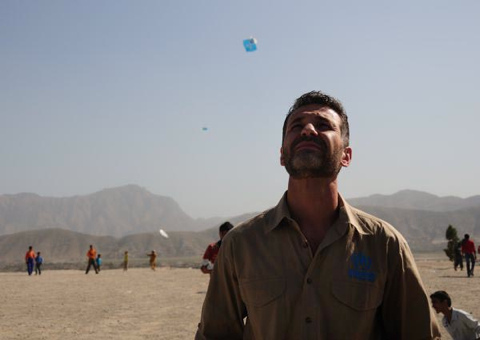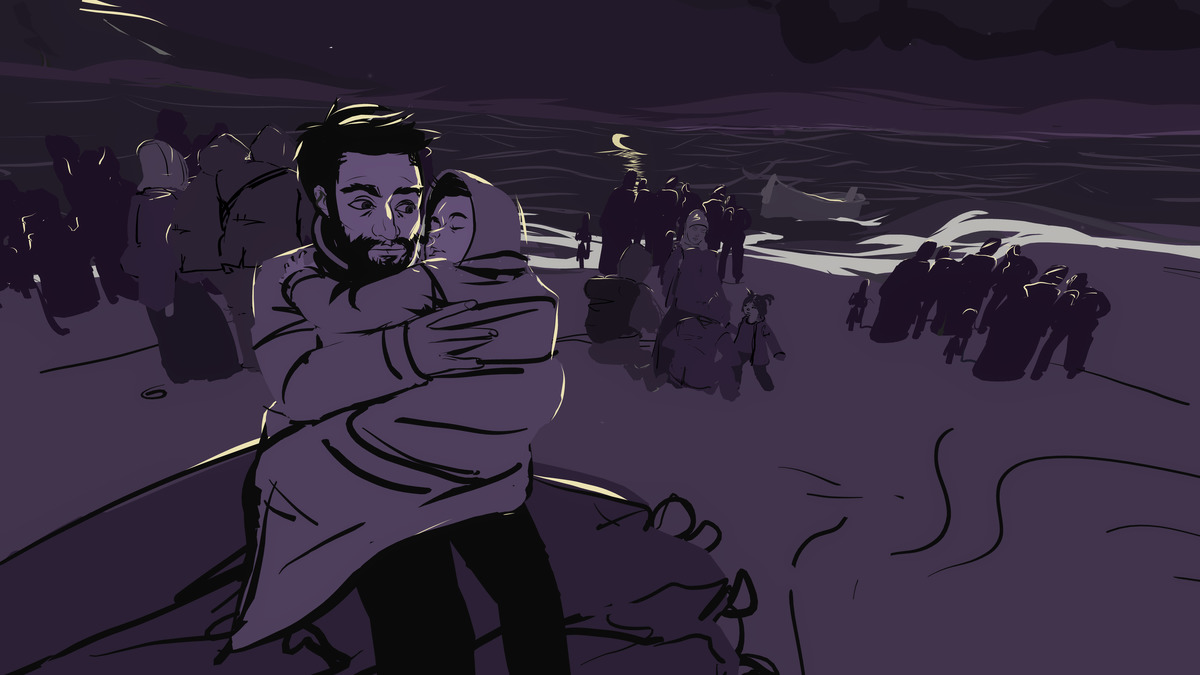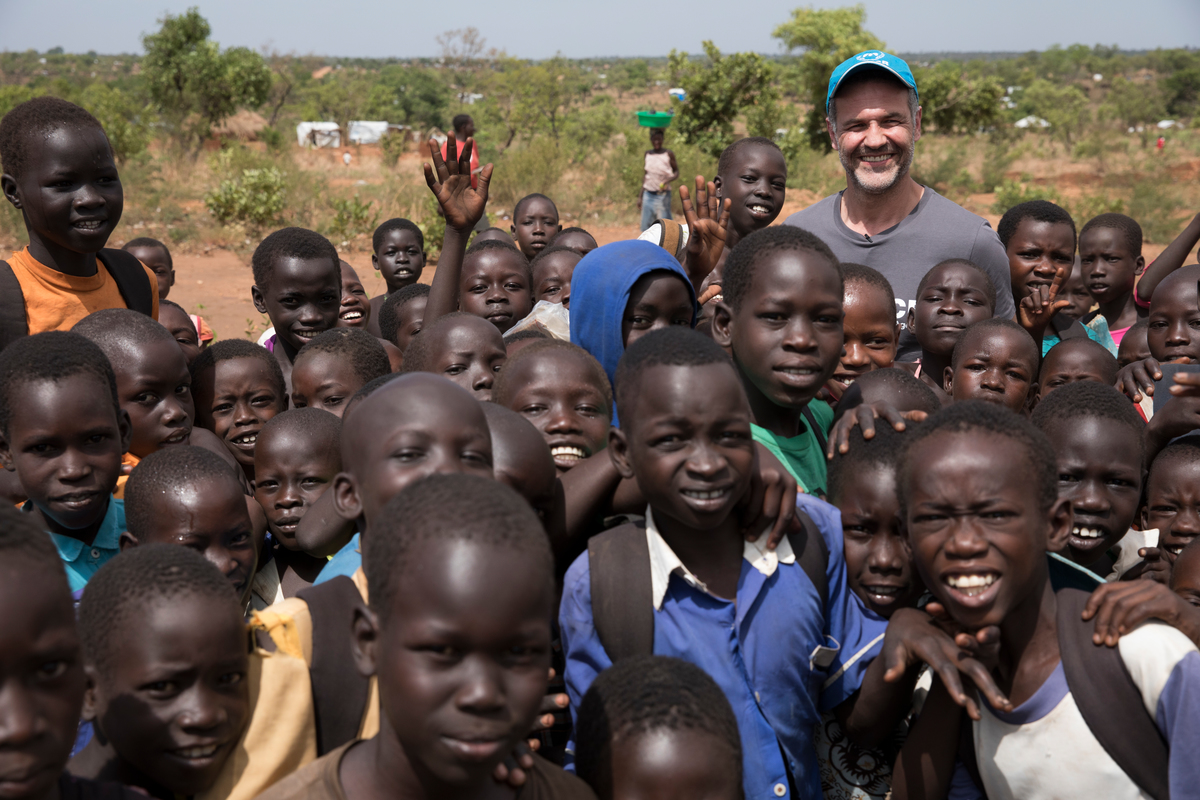Author Khaled Hosseini says peace vital for sustainable return of Afghan refugees
Author Khaled Hosseini says peace vital for sustainable return of Afghan refugees

KABUL, Afghanistan, September 15 (UNHCR) - Acclaimed American author Khaled Hosseini wrapped up a visit to his native Afghanistan on Tuesday by highlighting the need for peace to ensure the safe and sustainable return of forcibly displaced Afghan civilians.
"Finding long-term solutions to the Afghan refugee situation, including their sustainable return and successful reintegration, is directly linked to peace and stability across the country," said the former refugee, who was making his second trip here as a Goodwill Envoy to the UNHCR office in the United States.
During his five-day visit, Hosseini met with returnees and displaced Afghans around Kabul and in nearby Parwan province, where the author of The Kite Runner and A Thousand Splendid Suns visited UNHCR shelter and reintegration projects.
Hosseini also took part on Monday in a kite-flying festival held on Kabul's Tapa Marajan Hill as part of events linked to the coming International Peace Day on September 21. The UN refugee agency produced more than 2,500 kites for the Kabul event and smaller ones around the country. Hundreds of children and adults, many of them returned refugees, took part in the festival.
In Kabul and Parwan, Hosseini talked to returnees and internally displaced Afghans about the challenges they face. They included Azizullah, who left Kabul in 2005 and moved 70 kilometres north to Parwan's Beneworsik area, where the government has recently allocated home plots for landless returnees.
"After years of having lived in barren stretches of desert [in Beneworsik], I'm only now able to live with my family in a proper shelter," said Azizullah, referring to his new home built with materials provided by UNHCR.
After almost 30 years of conflict, peace is what all Afghans wish for. Bringing closure to the refugee chapter cannot be achieved without
it.Author Khaled Hosseini
Hosseini noted that security conditions in many parts of Afghanistan, especially in the south and south-east, remain a major obstacle to repatriation. This is particularly true for the hundreds of thousands of refugees still in Pakistan after fleeing fighting in the 1980s and 1990s.
"After almost 30 years of conflict, peace is what all Afghans wish for. Bringing closure to the refugee chapter cannot be achieved without it," noted Hosseini. "Operational space is shrinking. It's also becoming more challenging for humanitarian agencies to meet the essential needs of the most vulnerable people in conflict-affected areas."
Insecurity has greatly hampered the ability of agencies like UNHCR to provide assistance to those who need it most. It has also caused some returnees to leave their homes again.
The protracted conflict has gravely affected socio-economic conditions and opportunities in Afghanistan. Many Afghan refugees in Iran and Pakistan who are considering repatriation say they are discouraged by the lack of jobs and basic services.
These realities are reflected in this year's reduced repatriation figures. Since 2002, more than 4.3 million Afghans have returned home with UNHCR's assistance. But this year, the annual figure has only recently passed 52,000.
Hosseini left Afghanistan in 1976, when his diplomat father was posted to France. After the Soviet Union invaded Afghanistan in 1979, his family was resettled in the United States. Since becoming a Goodwill Envoy in 2006, he has visited refugees, returnees and the internally displaced in Afghanistan and Chad.
By Mohammad Nader Farhad in Kabul, Afghanistan









